The styles of President Trump and Chancellor Merkel, respectively, could not be more different. But real leaders get over personal differences, writes Constanze Stelzenmüller. The only important question is: How should Merkel respond in substance to the accusations being leveled at her and at Germany by Trump’s administration? This piece originally appeared in The Washington Post.
The first meeting of German Chancellor Angela Merkel with President Trump in the United States is causing tension in Berlin and Washington to rise to a fever pitch. Will there merely be a polite conversation and a (perhaps slightly too long) handshake, to sighs of relief all round? Or will there be (cue diplomatic shudders) an open confrontation, fodder for yet another instantly immortal “Saturday Night Live” edition?
The battle lines, at any rate, have been drawn. During his campaign, Trump skewered Merkel’s open-door refugee policy repeatedly—a critique known to be held with even greater fervor by his chief strategist Stephen K. Bannon. Peter Navarro, head of the new National Trade Council, recently suggested that Germany uses a “grossly undervalued” euro to “exploit” the United States and other European countries. The president has criticized Germany for not spending enough on defense. He has characterized NATO as obsolete and the European Union as dispensable. The German chancellor has so far remained silent on these remarkable accusations — but it was all the more notable that her offer of cooperation after Trump’s election added the barbed reservation, “on the basis of these [shared] values.”
Indeed, Friday’s encounter between Trump and Merkel will be a through-the-looking-glass moment, as it marks an unprecedented reversal of leadership roles between the United States and Germany. The host is an American president with an unusually dystopian view of his own country, sympathies for authoritarian leaders, and a dislike of globalization, multilateral organizations and immigration. His guest grew up in East Germany with an idealized vision of America as a defender of liberty around the world. A holder of the Presidential Medal of Freedom, she has expressed deep gratitude for Washington’s support for German reunification in 1990. In her 12 years as chancellor, she has let nothing come between her and her commitment to transatlantic relations — not even revelations about the U.S. National Security Agency wiretapping her cellphone, or a surprise back rub by then-President George W. Bush.
The style of the two leaders could not be more different. He is thin-skinned and quick to anger. She is stolid and resolutely unimpressed by bluster. He tweets; she makes little-watched weekly video podcasts on issues. A German newspaper reports that her preparation for Tuesday includes reading a Playboy conversation with her host from 1990; if that publication ever interviewed Merkel, it is not recorded.
But real leaders get over personal differences. The only important question is: How should Merkel respond in substance to the accusations being leveled at her and at Germany by Trump’s administration?
The standard German response would be to explain (with footnotes) why Germany is right—factually and morally right—in acting as it does. This might even be accurate in some cases. But it tends not to work so well as a conversation opener in other countries. So here’s a more surprising—and possibly disarming?—gambit: Perhaps it’s time to admit Germany’s vulnerabilities.
For starters, Germany spends barely 1.3 percent of its GDP on defense (rather than the 2 percent promised to NATO), and its armed forces and kit are badly in need of an overhaul. Guilty as charged.
Then there are those surpluses: a record current trade surplus of $253 billion; a trade surplus of $70 billion with the United States (not quite the $800 billion manufacturing deficit cited by Trump, but still); and a record fiscal surplus of $25 billion. The rationale for our obsession with savings is our aging society. But we can plan for that and still have billions left over for investments in national infrastructure. Or a European jobs program. Just saying.
Next, Merkel is bringing a slew of German CEOs to talk about German direct investment ($255.5 billion in 2015), the fact that German companies have created 670,000 U.S. jobs, as well Germany’s dual system of education and jobs training, which accounts for a youth unemployment rate of only 6.5 percent in the country. Excellent. But how about an additional unexpected gesture of goodwill tailored to the new administration’s concerns (but very much in Europe’s interest as well) — such as gearing up German counterterrorism efforts, or making a larger military contribution to the fight against the Islamic State?
A German sitting in on Friday’s meeting might well be tempted to add just how outlandish some of this administration’s belligerent rhetoric on culture wars and economic nationalism sound to European ears, and that Berlin is actually in no position to dictate to the European Central Bank or to governments in Stockholm or Athens.
But Merkel would be better advised instead to quietly outline the things that are not, and never will be negotiable: NATO and the European Union. National borders and the self-determination of peoples—including those of Ukraine and its citizens. Representative democracy, political pluralism and the protection of minorities. After all, the West—as her new Foreign Minister Sigmar Gabriel told a surprised Russian Foreign Minister Sergei Lavrov in Moscow last week—is a community defined less by geography than by values. Merkel is not the only German to believe firmly that this is something we continue to share with most Americans.
The Brookings Institution is committed to quality, independence, and impact.
We are supported by a diverse array of funders. In line with our values and policies, each Brookings publication represents the sole views of its author(s).

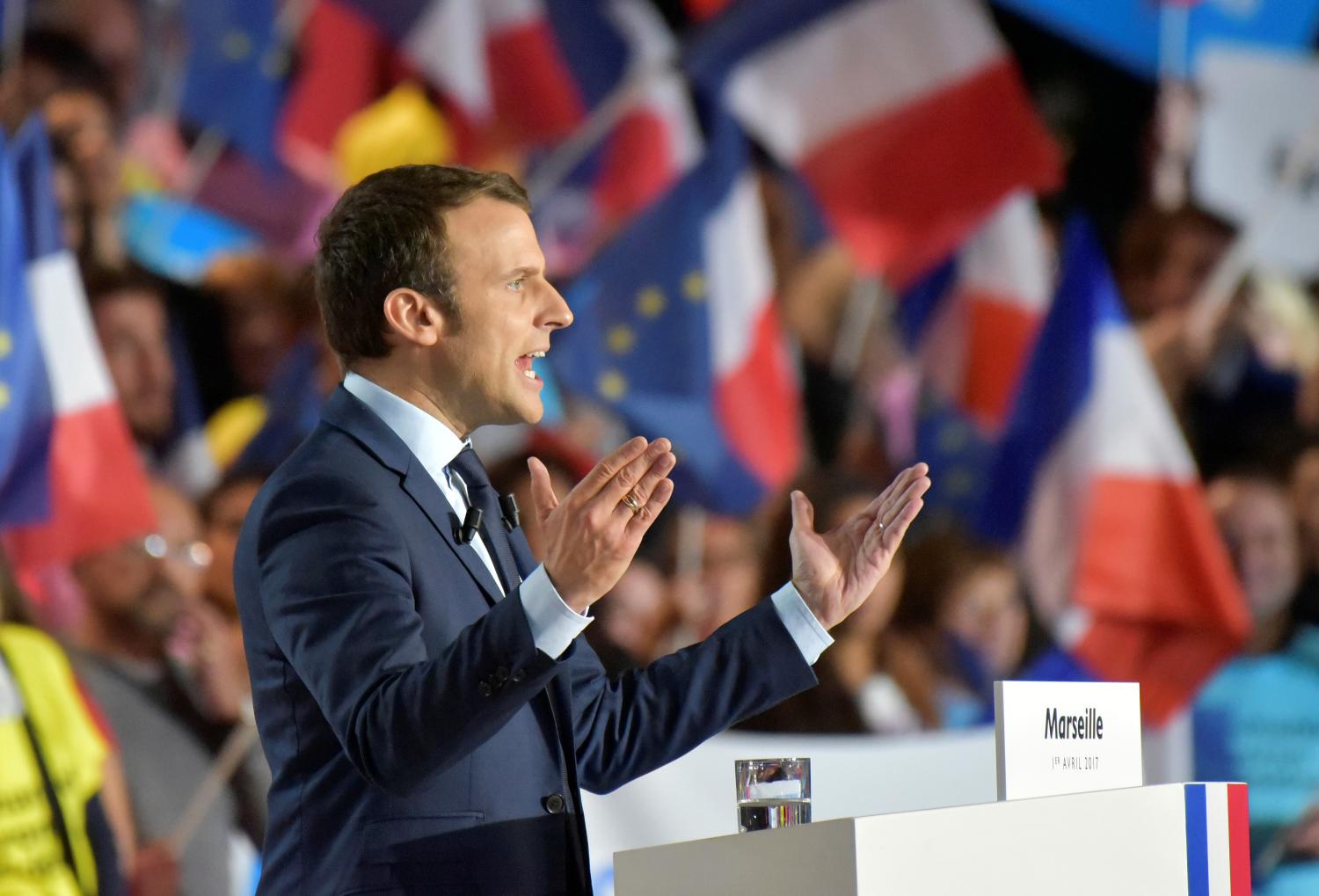

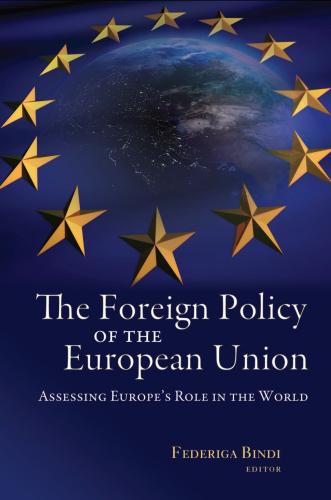

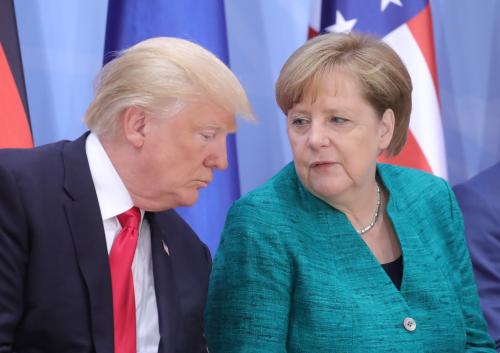
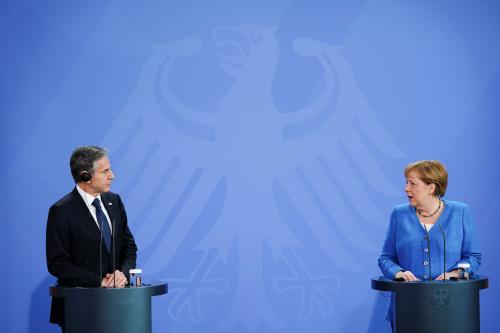
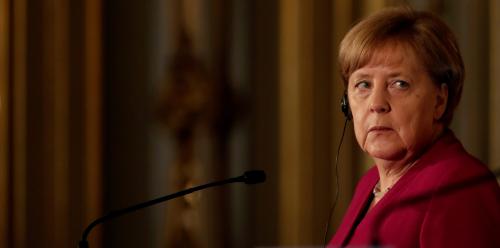

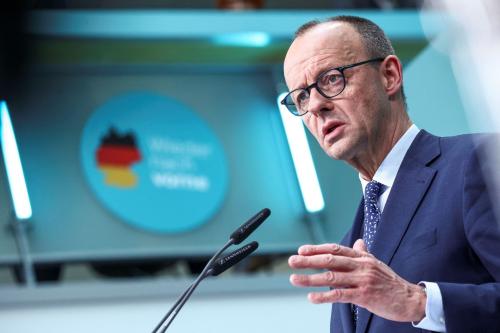


Commentary
How Merkel can disarm Trump—and hold the line on Western values
March 21, 2017